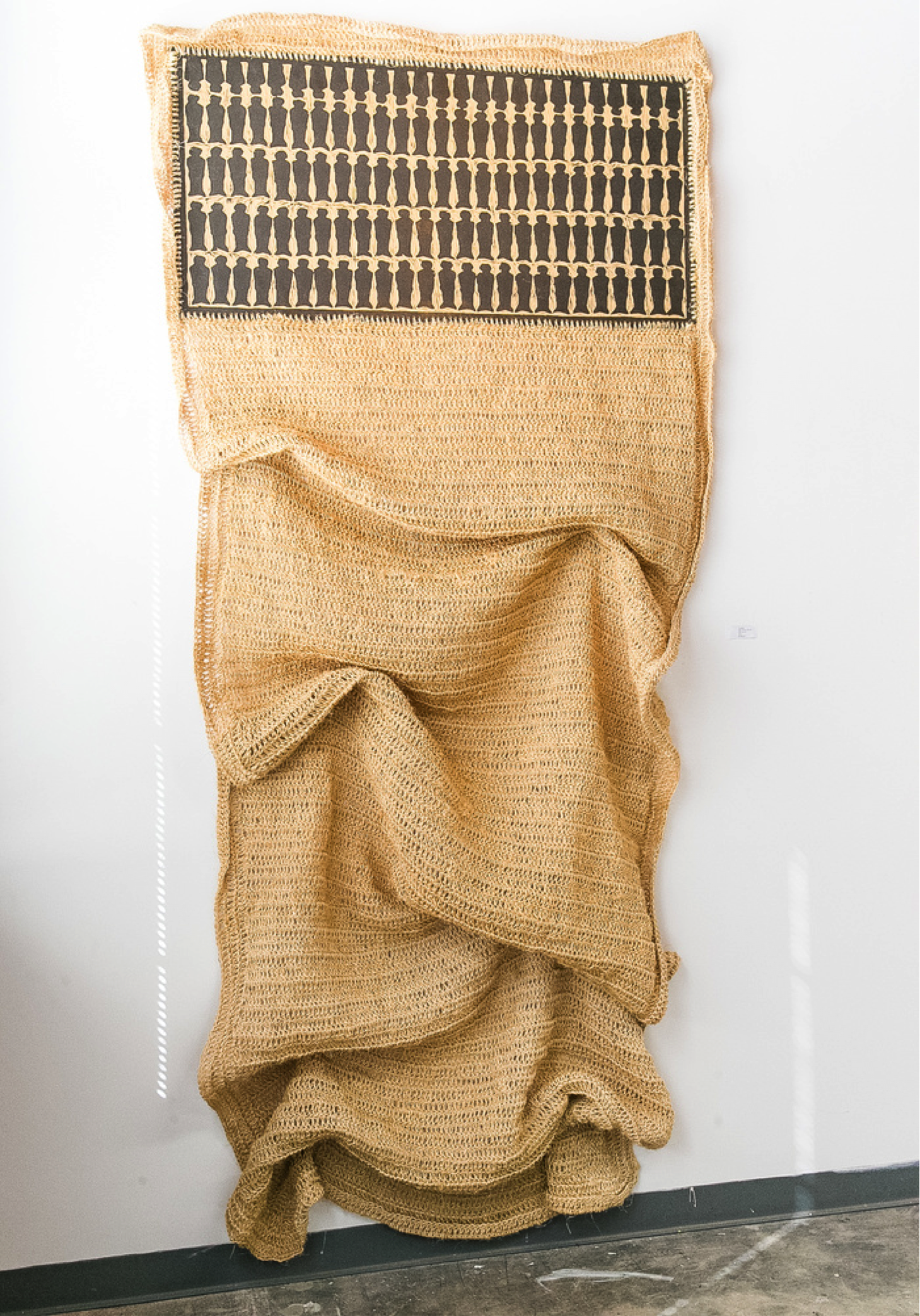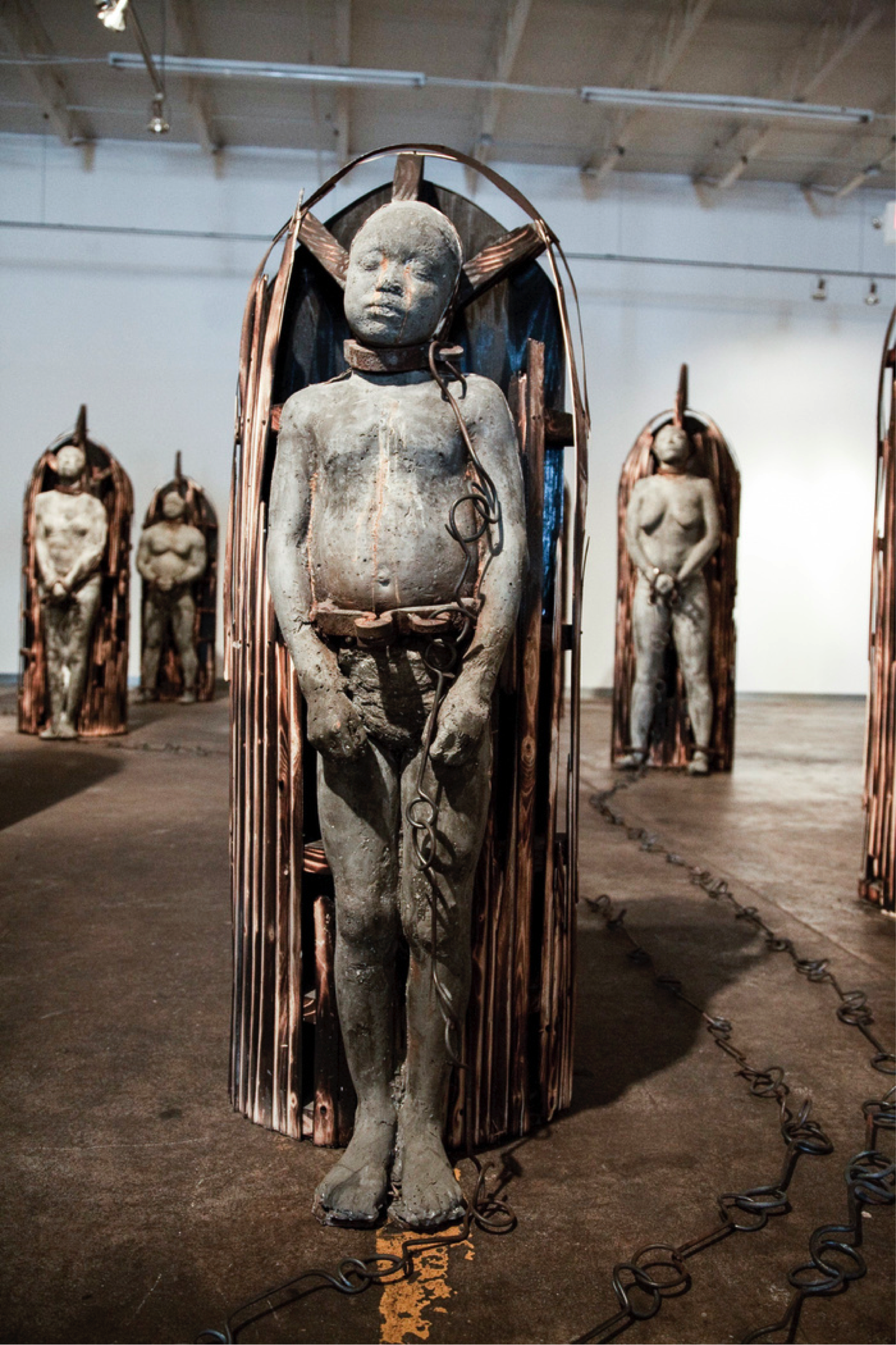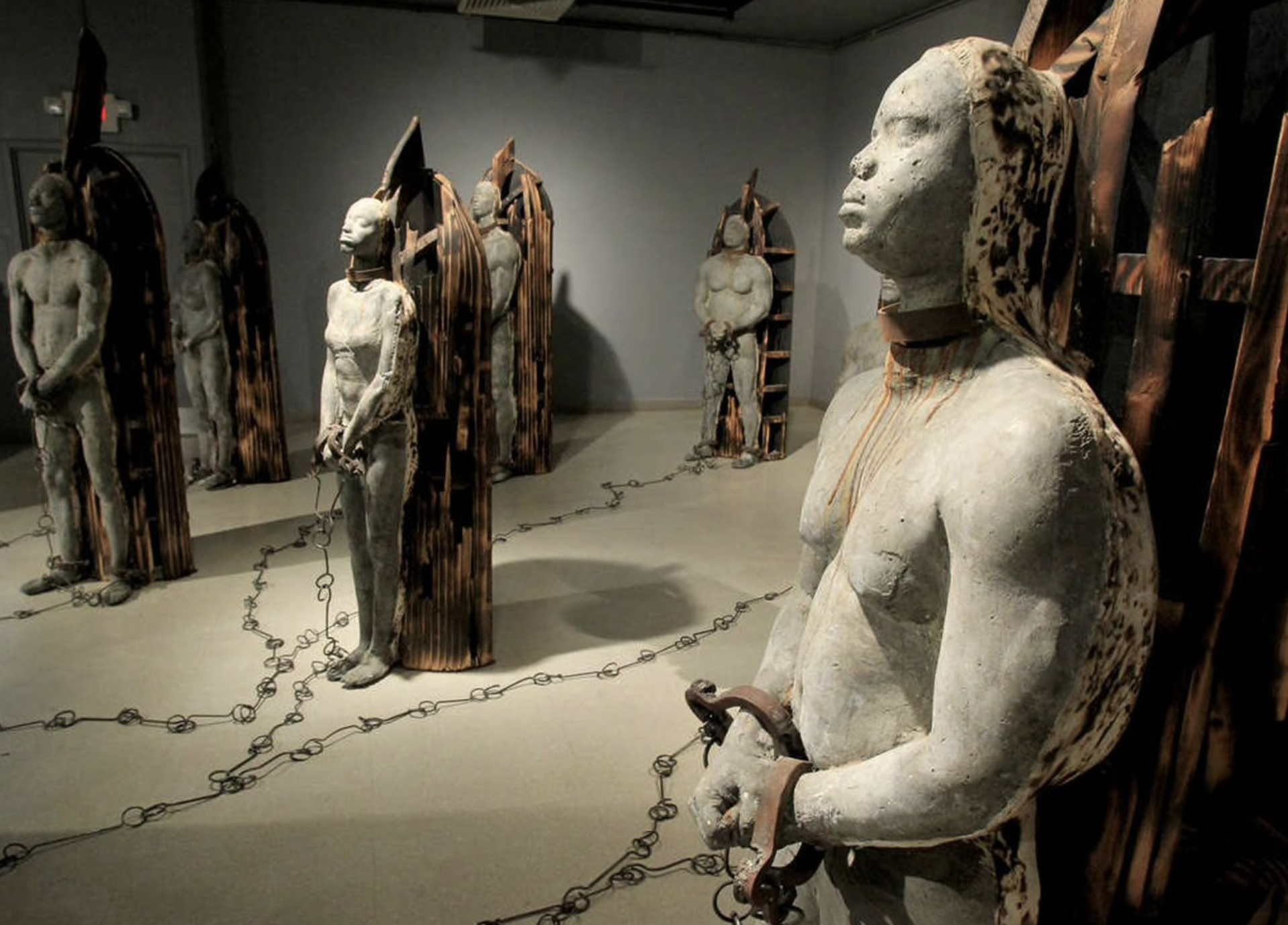In the Studio with Stephen Hayes

Artist Stephen Hayes remembers a childhood epiphany when, after breaking a remote control car, his older brother rewired the motor to a nine-volt battery and got the car running again. He recalls suddenly realizing, “I can break my toys and make brand new toys out of them.” This moment became the impetus for a lifelong process of creation.
“My mom got me a workbench when I was in the second grade with real tools—saws, hammers, and nails. [My parents] were bringing machines from their job that they were throwing away and I was taking them apart and making stuff out of them. I was that little kid that always had duct tape and toilet paper wrapped around my finger because I cut my finger and didn’t have band-aids. I was just always making things.” This early exposure shaped Hayes’s creative ingenuity and ability to move with ease between mediums and materials. Despite years of professional artistic training, Hayes’s instinctive, unconstrained approach hasn’t changed much decades later.
The first in his family to finish college, Hayes followed a circuitous route before finding himself back at his artistic origins. Originally planning to study mechanical engineering at NC Central University, Hayes switched to graphic design shortly after discovering a friend in the department who was completing his degree by “making art.” Hayes found this astonishing and almost absurd, and his next steps seemed obvious. “I’ve been doing this all my life,” Hayes laughs. “I didn’t know I wanted to be an artist; I just knew that this is what I do and I’m always thinking about something to make.”
He learned printmaking, screen-printing, and drawing, among other art disciplines, but discovered a strong proclivity for ceramics. Mastering hand-building and clay-throwing techniques, Hayes spent much of his time after-hours in the university’s ceramics studio. After graduation, he landed an artist residency at the New York State College of Ceramics at Alfred University. Soon after, he enrolled at the Savannah College of Art and Design.
“At this point I didn’t know how to talk about art. I didn’t have the vocabulary to talk about what my artwork means… I just knew how to make. All my work was more abstract.” Hayes recounts feelings of frustration and discouragement that dampened his graduate experience. During art class critiques, his more verbose peers often denied that he was an artist when he declined to speak about his work at length.
“I was the only African American in the sculpture department for about a year, and I didn’t have any African American professors that I could relate to or talk to about what I was doing, so I was still kind of lost.”
Despite early difficulties assimilating into a professionalized art practice, Hayes persisted and earned his MFA in 2010. “I ended up creating my MFA thesis show about stuff I didn’t learn about in school, about the transport of people as goods and commodities.” The show, “Cash Crop!”, featuring fifteen life-size statues chained to pallets, garnered national attention and was featured on CNN. Hayes remembers waiting to watch the clip air on television at AT&T. For Hayes, this moment was formative and startling. He felt an inward sense of recognition—he could Google his name and see photos of his artwork online. The rigors of art education had often distorted the idea of being an “artist” into a contentious identity, rather than an inherent one; finally witnessing others view and experience something he had created was critically affirming for Hayes in his artistic trajectory. Since then, “Cash Crop!” has exhibited around the nation, while Hayes has continued to create, reinforcing the inventive processes that began in his early childhood. His work today remains primarily concerned with the human form, and his sculptures combine an assortment of materials and found objects.
When asked what his hopes are for his work, Hayes responded that apart from drawing someone’s attention, he would like “to be able to change somebody’s idea about how they’re being seen.” He remarked with a smile, “I like to say I’m a creator.”
Stephen Hayes has instructed sculpture at Duke University since 2018 and continues to make his work at the Oregon St. sculpture studio.



